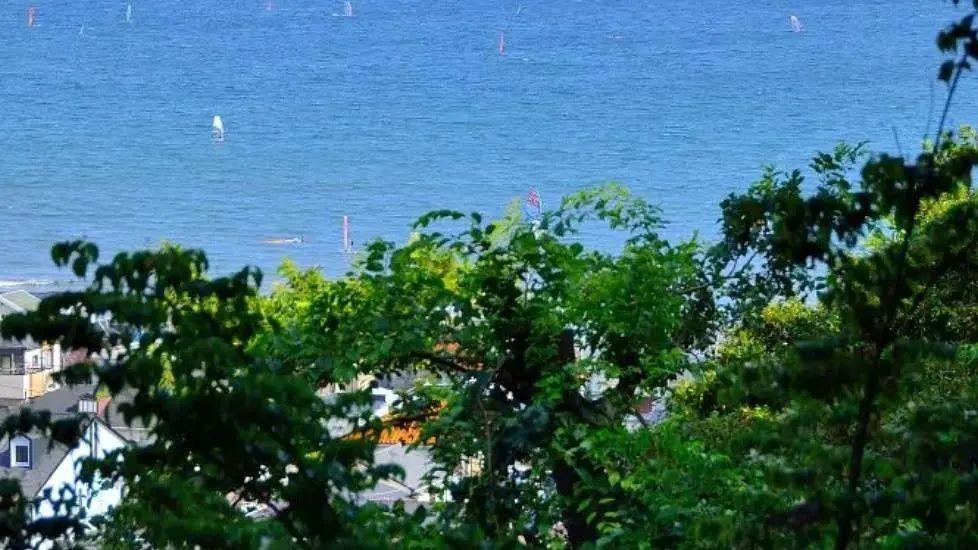Bai Qiu's brother Tie Xiong ran around to raise funds. Two weeks later, the funds were raised, and after negotiation, the lawsuit was withdrawn with a compensation of three hundred yuan to Junzi's husband, avoiding criminal punishment. However, this experience of imprisonment nearly drove Bai Qiu to the brink of mental collapse.
In such distress and struggle, Bai Qiu developed depression and mental oppression. However, during this time, he continued to create new works. In these works, more or less, openly or subtly, there was always the imprint of this married woman. In May of the 44th year of the Meiji era, he published his second poetry collection, titled "Memories," which was called "A Collection of Lyric Pieces," solidifying his position in the poetry world.
In this "Memories," there is a section titled "Fragment," which is a poem for Junzi---
That is someone else's wife
It is the unique story of Francesca
As we speak, the baby cries again
Crawling around nearby
And you, just seem indifferent
That is someone else's wife
“A moment apart is unbearable, sad like a fox's enchantment”
“In the heart, dead silence when I can't see you, the cherry blossoms white in the dazzling dusk”
“On the morning you return, hearing the crisp footsteps on the stone road, snow falls like the fragrance of apples”
(The above are poems from Bai Qiu's poetry collection "Flowers of the Paulownia")
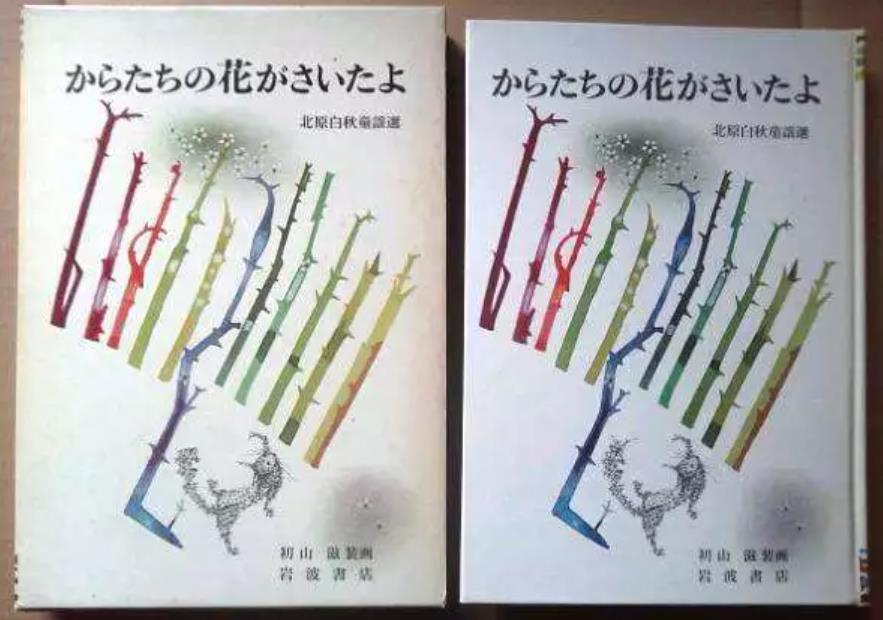
Bai Qiu's poetry collection "Flowers of the Paulownia"
There is also a poem titled “For My Sad Sophie”---
The white moon has come out, Sophie.
Come out and take a look, Sophie.
Like forget-me-nots
That, that blue sky, Sophie.
(The above is the first stanza of this poem, where "Sophie" is also Bai Qiu's affectionate name for Junzi. It can be seen that as love deepens, the poet's works increasingly celebrate this love.)
“Wild Exposure”
When about to die, increasingly
Yearning for life
To abandon this body, exposed in the fields
Only then will one know what true tears are
Because she is someone else's wife, so each walks their own path
To the point of being utterly tainted
Can only wander on the road of sin that cannot stop
-----The above was published in the April issue of "Zhu Luan" in the second year of Taisho (1913)
-----Published in the April issue of "Zhu Luan" in the second year of Taisho (1913)
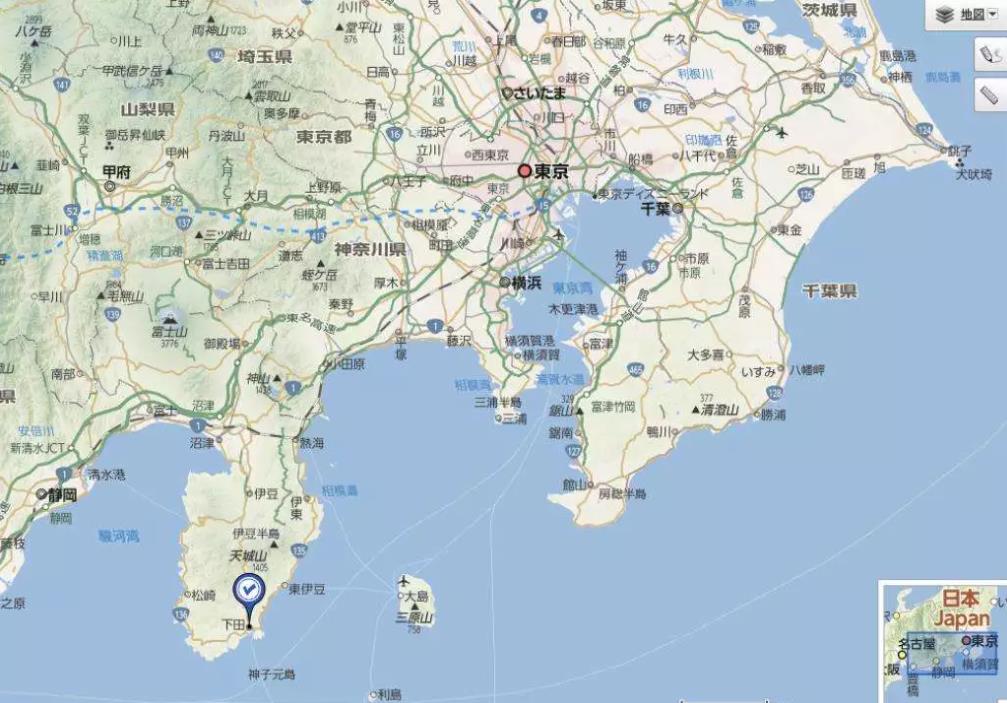
Map of Miura Peninsula
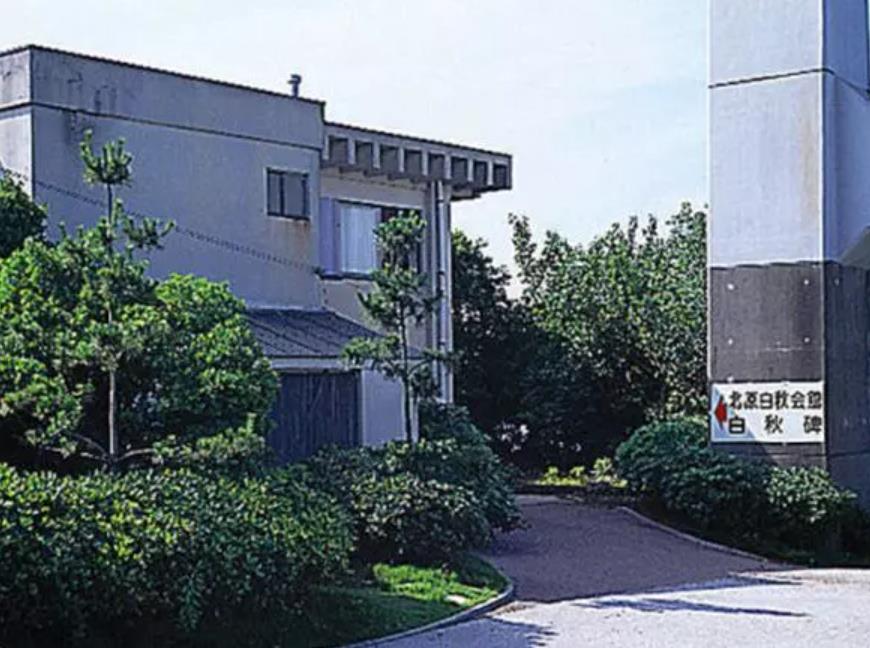
Hakushu Memorial Hall (Miura City, Kanagawa Prefecture)
A few years ago, the Hakushu family went bankrupt, and the burden of family life fell on him, the eldest son. In the second year of Taisho, he, having lost his reputation, crossed the sea with his family to Misaki at the southernmost tip of the Miura Peninsula. Here, his father and younger brother acted as brokers for the fish market, but soon they failed and returned to Tokyo. Hakushu once resolved to die, but later, with the persuasion and help of friends, he abandoned his suicidal thoughts. Later, Toshiko divorced her husband and came to Misaki, where Hakushu worked hard to shake off his despair through writing. At this time, Shimamura Hōgetsu commissioned him to write lyrics, and his song "The Rain of Shiroshima," composed by musician Ryōden Seiji, later became a hit at a concert in Tokyo.

Misaki Port, Miura
After living in Misaki for a year, Toshiko and Hakushu crossed the sea to Chichijima in the Ogasawara Islands. In July of the third year of Taisho, they returned to Tokyo. In September, the two divorced. Although Hakushu and Toshiko's relationship was fraught with hardship, his poetry and tanka creation flourished. However, Toshiko's uninhibited behavior could not be accepted by Hakushu's family. She could be said to be the "witch" in Hakushu's life, marking the darkest period of his life, bringing endless sorrow, just as the poet said: "I fell rapidly into tears. I was haggard, sinking, mentally disturbed, my heart desolate, and I felt that darkness surrounded me in all directions."
After that, Hakushu exiled himself to Koiwa Village in South Katsushika, naming his residence "Purple Smoke Grass Society," located in the center of rice fields. His life remained difficult, but his second wife, Eguchi Akiko, unlike his first wife Toshiko, was humble and hardworking, supporting him tirelessly. The two lived a pastoral life, eating cabbage, during which he published the poetry collection "The Sparrow's Egg."
In the sixth year of Taisho (1917), 31-year-old Jun'ichirō Tanizaki, along with his contemporaries Yū Yoshii and Hideo Nagata, after a night of revelry in Yoshiwara, suddenly thought of their reclusive friend Hakushu and planned to visit him. They invited him to the Kawajima restaurant in Shibamata, drinking until nine in the evening. Under the influence of alcohol, they urged him to return to Tokyo with them. Hakushu wanted to go home but could not refuse everyone, so he got off at Edogawa after one stop from Shibamata and walked home with a lantern.
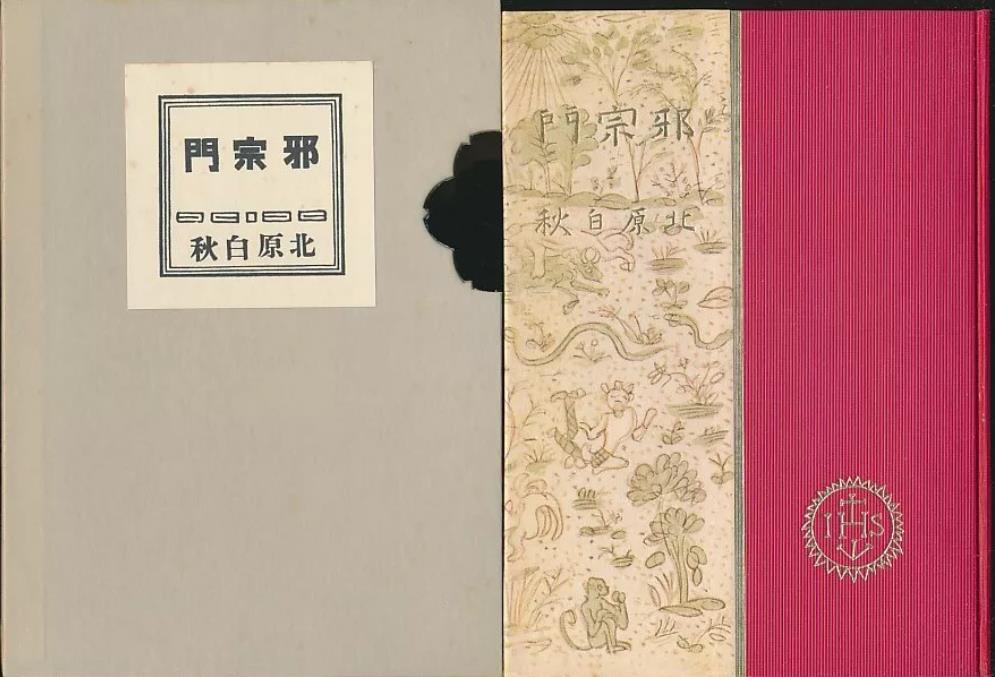
Poetry collection "The Heretical Sect"
Friends recalled how, eight years ago, when the "Pan God Society" was just established, Hakushu had just published "The Heretical Sect" with great enthusiasm. At that time, Hakushu had a dignified presence, was cheerful, and enjoyed taking care of others, eating and drinking heartily at gatherings. Now, seeing him in such a state of decline, how could it not evoke sadness? This time, friends came to encourage him, but even when Hakushu got drunk, he was unwilling to relive old dreams with them.
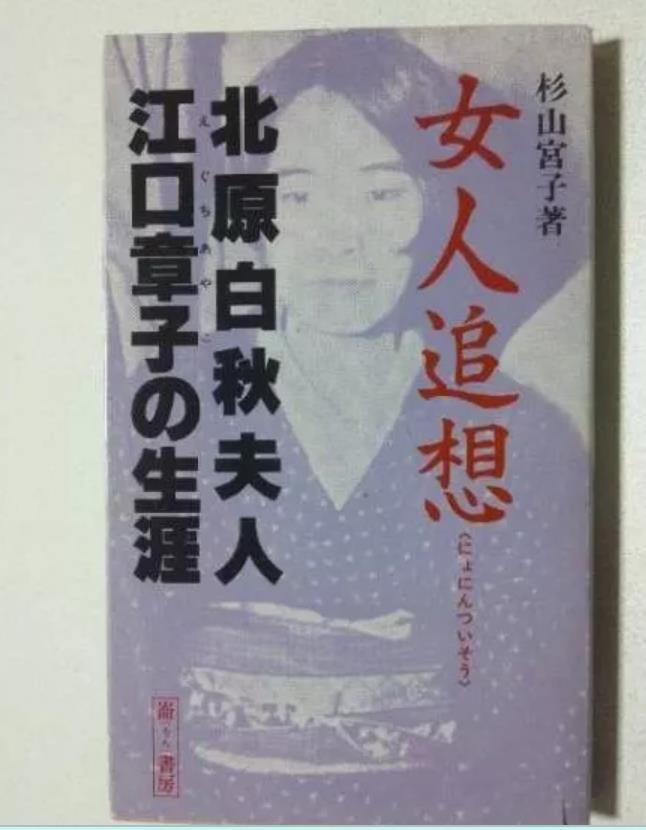
Sugiyama Miyako "Women’s Reminiscence - The Life of Kitahara Hakushu's Wife, Eguchi Akiko"
To raise funds for a new house at Denjō-ji in Odawara, Akiko had conflicts with Hakushu's family. In the eyes of Hakushu's younger brother Tetsuo, his brother felt frustrated and irritated that his poetry was not as good as before, while at that time, Akiko was falling in love with newspaper reporter Ikeda Hayashi. Hakushu became furious, and Akiko went to discuss this with Tanizaki Jun'ichirō, who agreed that they should separate, which angered Hakushu and led to a break in relations with Tanizaki.
Their short five-year marriage ended, and Akiko published a poetry collection titled "The Heart of the Separation," with "The Port of Farewell" written for her lover Ikeda. It expressed her feelings as he left for Berlin, bidding farewell at the port. Akiko later fell into a life of prostitution in Oi, Shinagawa Ward, and in her later years, she indulged in food and drink, ultimately succumbing to depression, covered in excrement, as recorded in detail by Setouchi Jakuchō.
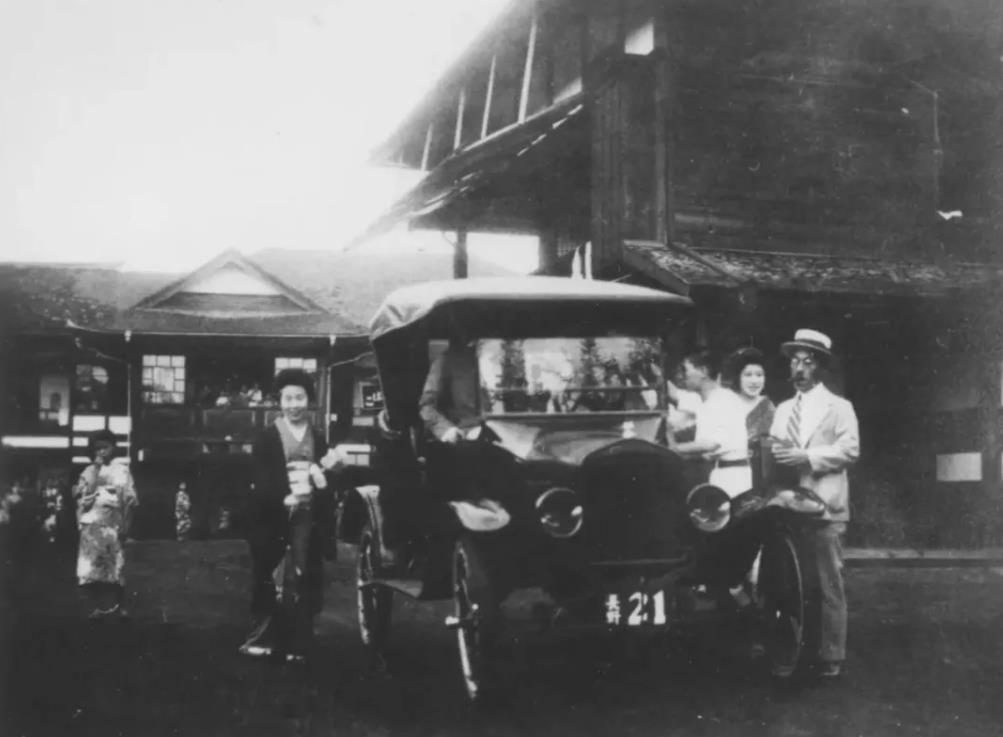
Hakushu's third wife, Kikuko, was a virtuous housewife skilled in French cooking. At 36, Hakushu finally found a life partner, and thereafter, life went smoothly. He first went to Karuizawa with his wife, where he wrote the famous work "Larch." A year later, their eldest son Ryūtarō was born, and influenced by his child and the children's song movement, he began actively engaging in the creation of children's songs and stories. His poetry creation erupted once again, as he pursued the tranquil spirit of Bashō and the Eastern philosophy of Laozi, exuding a clear and subtle fragrance in his words. The poet was meticulous in his choice of words, with language that was restrained and clear, achieving the simplicity and purity of ink wash painting.
For Hakushu, Akiko was the best wife. His life with Toshiko and Akiko was fraught with thorns, but he finally found peace with Kikuko. These three wives were indispensable to him; life is like that. In fact, the people you meet, no matter how they are, are all right; this is destiny, the so-called fateful encounter, meeting the right person at the right time.
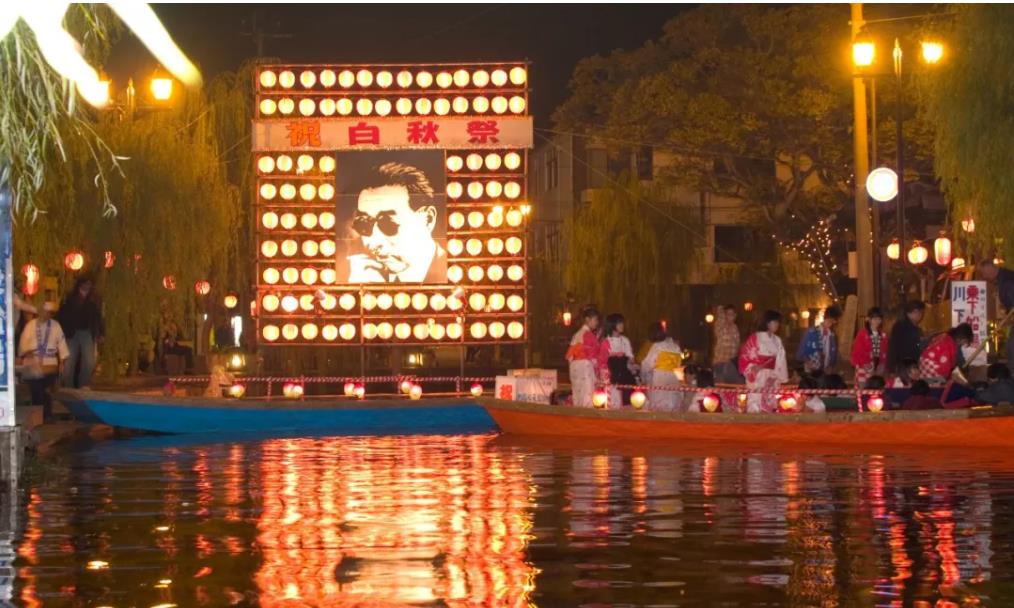
Yanagawa Hakushu Festival
Perhaps due to overly rich nutrition, Hakushu developed diabetes and later suffered from eye disease, relying on weak eyesight for dictation writing. In the 17th year of Shōwa, he was hospitalized due to kidney disease and diabetes, but soon insisted on leaving the hospital to return home. He began organizing and editing three children's songs and dozens of works, striving to complete his art.
At the turn of autumn and winter, he showed signs of difficulty breathing. After receiving a strong injection, he shouted, "I won't lose!" When his condition stabilized slightly, he wanted to eat. His wife gave him apple juice, and at that time, he could only eat liquid food. He surprisingly finished two slices of apple, which amazed those present. His son Ryūtarō opened the window to let fresh air in, and Hakushu said to him, "Today, November 2nd, is my day of rebirth! You must remember, it is my shining anniversary, a brand new start." After saying this, he took his last breath at home in Asagaya, Suginami Ward, Tokyo, at the age of fifty-seven, and was finally buried in Tamura Reien.
